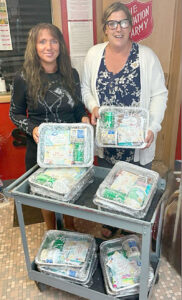Language for babies six months to one year
Researchers have learned the importance of focusing on language with babies age six months to one year. What might this focus look like in the family? It means we talk, sing, read and play with our young ones a lot and we make sure that childcare providers are doing the same. Again, we can look to the United Kingdom’s program “Tiny Happy People” featured on the BBC web site to help families.
Get really close
Dr. Singh suggests family members get close to their baby’s face and respond with a smile and enthusiasm when talking to them. Let babies touch your washed face and tell them what they are touching. Then return the favor.
Walk around and notice where your baby is looking. Talk about what they see. Hold them up to the window and talk about what is out there. Sit on the porch or walk around the backyard. Take them with you as you do house chores and talk and sing while you fold clothes. Give them something to hold or shake talking all the while.
Snack and meal times
When babies six to one year old have full control of their head and neck they may start eating in a high chair with complementary food besides milk or formula. High chair time is also talk time. Try repeating the words they are focusing on like mashed cooked fruits, veggies and protein soft enough to avoid choking and recommended by your doctor. Smack your lips and make sounds. They might imitate.
Place your baby in a high chair next to you while talking, washing dishes, or filling the dishwasher. You are lots of fun because you make great sounds they might like to imitate. Create some action like splashes and bubbles. They are still a bit young to do that themselves with soapy water.However, they may like to splash you with a little clean water on the high chair tray and make a mess before bath time.
Park time and hiking
Babies are all about exercise outside. Take a jaunt around the block or visit a hiking trail. While you walk they come along and exercise their senses, get some fresh air, and bond with you. Let them touch trees, grass, and other safe things outside to learn textures and smells. If they hear birds or a squirrel chattering or dog barking talk about that. Rustle and crunch leaves. Talk about textures, sounds, and bright colors especially red and yellow. Wash their hands often though. There is always a direct line to their mouth at this age.
Repeat some words. They might make some of their own sounds–talking back to you.
For more information see grandparentsteachtoo.blogspot.com; wnmufm.org/Learning Through the Seasons; bbc.co.uk /Tiny Happy People.




